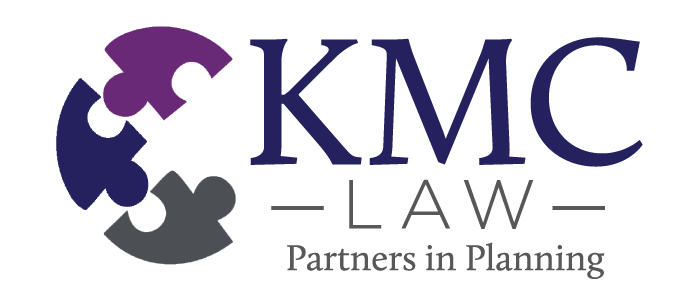Meeting with our Attorney
When should you meet?
People mistakenly believe that only seniors or sick people need to worry about making an estate plan, but that is not the case. Life is full of uncertainties and you never know when something unexpected could happen to you. If you pass away before you create an estate plan, you lose the ability to make a plan to protect your assets, facilitate the transfer of assets to heirs, the chance to control your legacy, and your family could lose out on part of their inheritance. You need to have a plan in place, which reflects your current wishes, as soon as you have assets your care about and people you wish to provide for after you are gone.
It is important to make smart choices about when to schedule a first meeting. Preparing in advance to meet with an estate planning attorney is important to make the most of your meeting.
How to prepare for your consultation
Meeting with an estate planning attorney is often a stressful event. You know you are headed to a meeting where someone will ask you what you want to happen when you die. Where do you want to be buried? Do you want to be cremated? Who takes care of your kids if you are dead? And many more equally unpleasant questions. To make that part easier, try and bring as much of the requested information you can. If you have set up an consultation with our attorney, some of the things that you may wish to do to get ready for your appointment may include:
Write down your estate planning questions. It is very common for people to have many different things they wish to ask the attorney. However, when you actually meet, it is easy to become overwhelmed with all of the information and the questions and end up not remembering everything you wanted to ask. If you have a list of all the direct questions and concerns that you have, our attorney can answer them for you.
Write down your estate planning goals. Who would you like to receive your property? Is there anyone you would not want to receive your property? Do you want to leave anything to a charity, university, church, or other organization? Would you like to appoint a guardian to care for any minor children? Are you worried about heirs losing money? Are you worried about estate or inheritance taxes? You likely have many different reasons for creating an estate plan. If you write down some of your goals and are prepared to discuss them with our attorney, she immediately hone in on different ways to achieve your plans.
Make a list your assets and beneficiaries. You don’t have to do this before your consultation, but you are going to have to make a list at some point of what property you own and what you want to have happen to that property. You may as well get started so you will be able to provide your attorney with more information on what you hope to accomplish when making your estate plan.
By taking these simple steps, you can have a productive and positive first meeting with our attorney and you can ensure that you make valuable use the consultation time. Our attorney will be able to get started right away on helping you to accomplish your goals.
Other things to consider:
Who would you like to serve as personal representative (executor) of your will?
Who would you like to serve as trustee over any trusts?
Do you want to create a living will and durable health care power of attorney (Advance Medical Directive).
Do you want to assign other powers of attorney, such as for your finances?
Do you want to leave instructions for your funeral arrangements?
Do you want to donate your organs or donate your body to science?
Who would you like to serve as alternative personal representative, trustee, guardian or power of attorney if your first choice is unavailable or unable to fulfill the duties?
How to prepare for your follow-up meeting
As you get ready for your follow-up meeting with our attorney, you should plan to share certain documents and information about yourself. This information will help us develop an estate plan suitable to your specific situation and goals. This list is only meant to be a guide, and there may be additional information our attorney will request.
Our estate planning questionnaires deals with most of these questions in detail. The first questionnaire is for your financial information. You can download this document before the meeting. Our attorney will email the second document to get your biographical information and planning details. While you do not have to finish the financial questionnaire before the follow-up meeting the more you can prepare in advance the better.
Below are the kinds of financial information you should gather and prepare for the follow-up meeting:
Financial Information for Non-Retirement Assets- including bank accounts, investment accounts (annuities, mutual funds), stocks, bonds and U.S treasury notes. While it is nice to bring account names, numbers, balances and current statements, the attorney is more interest in the titling (sole, joint, tenants-in-common) and order of magnitude of the assets then the exact balances and account numbers.
Retirement Savings Information - including 401(k), 403(b), 457, IRA, Roth IRS, TSP, inherited retirement savings, and any pension information. Here we are looking for the type of asset, the institution or employer where it is held, and any beneficiary information. Again, exact numbers are not required.
Life Insurance Information - including the type of policy (term, whole, VUL, Group, etc.), the ownership, the company providing the insurance and beneficiary information. Here, the exact death benefit should be available and brought to the meeting.
Real Property (Real Estate) Information - including property address, ownership interest (sole, join, tenants-in-common), market value, and outstanding mortgage balance, for your primary residence, rental properties, vacation homes, and personally held business or investment property.
Tangible Personal Property (also called your Stuff) - including antiques, collectibles, jewelry, art, and other things that either have value intrinsically, or to you or your family. Remember it is the liquidation value, not the replacement value that drives taxes.
Information Regarding Inheritance - including current or anticipated inheritance, and any other current or future interest you may have in a Trust.
Business Information - including any business interest that you may have, the location of the business, and the type of business (I.e. closely-held business, family business, limited partnership, etc.).
Finally, consider your overall goals and desires for your estate plan. This will help guide our attorney in developing a comprehensive plan tailored to meet your individual needs.
When You Are Ready
When you are ready to schedule a consultation, please contact KMC Law of MD or click on the Schedule a Consultation link to see all available appointments.




